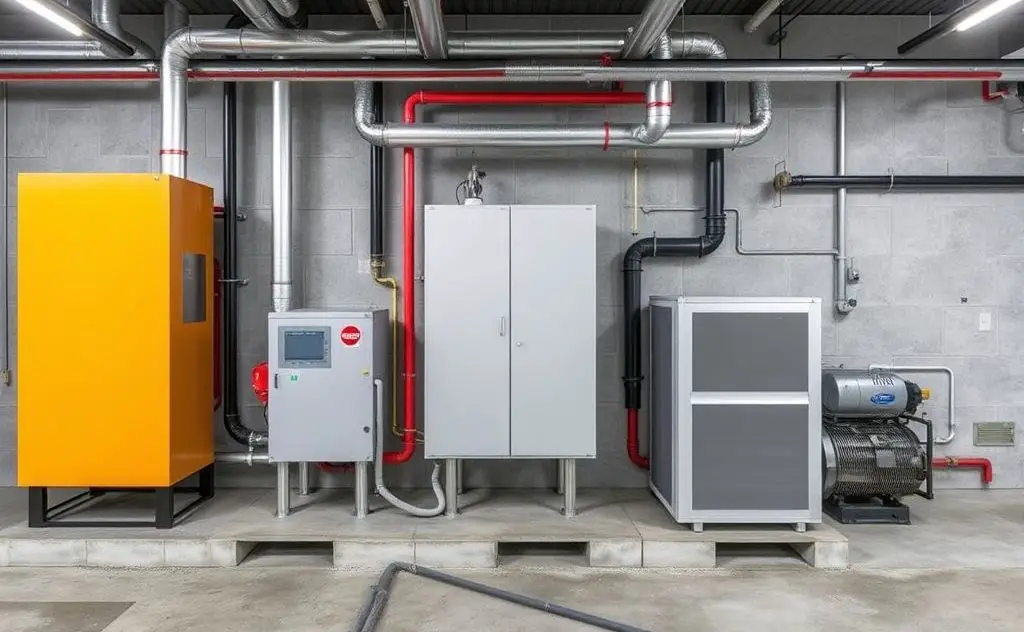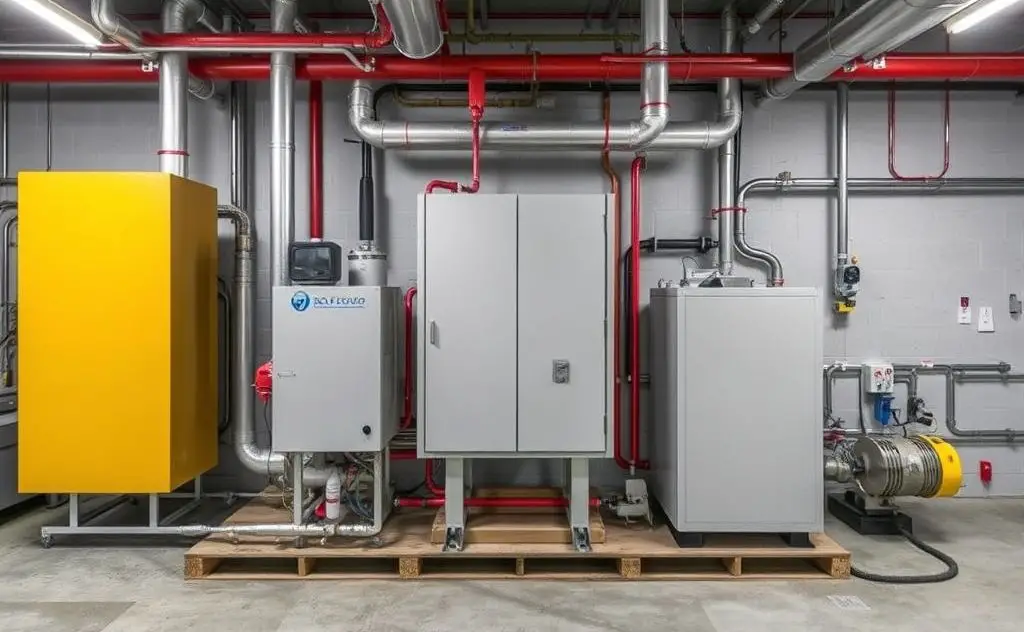HVAC (Heating, Ventilation, and Air Conditioning) focuses on indoor climate control, while refrigeration specifically deals with cooling and preserving perishable items.
While HVAC and refrigeration systems both manage temperature control, they serve distinct purposes in residential, commercial, and industrial settings. Understanding these differences helps in choosing the right system for specific needs.

Core Functions and Applications
HVAC (Heating, Ventilation, and Air Conditioning) systems focus on maintaining comfortable indoor environments. Refrigeration systems specialize in preserving perishable items through precise temperature control.
HVAC Systems
- Regulate temperature, humidity, and air quality in living spaces
- Include furnaces, air conditioners, heat pumps, and ductwork
- Common in homes, offices, and commercial buildings
Refrigeration Systems
- Maintain low temperatures for food preservation and industrial processes
- Include refrigerators, freezers, cold storage warehouses, and industrial chillers
- Essential for grocery stores, restaurants, and medical facilities

Technical Differences
The two systems differ significantly in their operating principles and components.
Temperature Ranges
| System Type | Typical Temperature Range |
|---|---|
| HVAC | 60°F – 80°F (15°C – 27°C) |
| Refrigeration | -40°F – 40°F (-40°C – 4°C) |
Key Components
HVAC systems typically include gas heaters or electric heating elements, while refrigeration systems focus on compressors and evaporators designed for lower temperatures.
Career Paths in HVAC and Refrigeration
Technicians in these fields require different specializations and certifications.
HVAC Technicians
- Install and maintain climate control systems
- Work with thermostats, ductwork, and temperature control systems
- Often require EPA 608 certification for refrigerant handling
Refrigeration Technicians
- Specialize in commercial and industrial cooling systems
- Work with complex refrigerant circuits and low-temperature applications
- Require additional certifications for handling hazardous refrigerants
Energy Efficiency Considerations
Both systems have evolved to meet modern energy efficiency standards, but with different approaches.
HVAC Efficiency
Modern HVAC systems incorporate variable-speed compressors and smart thermostats to optimize energy use. According to U.S. Department of Energy, high-efficiency HVAC systems can reduce energy consumption by 20-50%.
Refrigeration Efficiency
Commercial refrigeration systems now use advanced compressors and heat recovery systems. The ASHRAE standards provide guidelines for optimizing refrigeration system performance.
Maintenance Requirements
Regular maintenance differs significantly between the two systems.
HVAC Maintenance
- Filter changes every 1-3 months
- Annual professional inspections
- Duct cleaning every 3-5 years
Refrigeration Maintenance
- Coil cleaning every 6 months
- Regular refrigerant level checks
- Compressor maintenance every 1-2 years
Choosing Between HVAC and Refrigeration
The right system depends on specific needs and applications.
When to Choose HVAC
- For comfortable living or working environments
- When air quality control is important
- For spaces requiring both heating and cooling
When to Choose Refrigeration
- For food preservation and storage
- In medical or laboratory settings
- For industrial processes requiring precise temperature control
